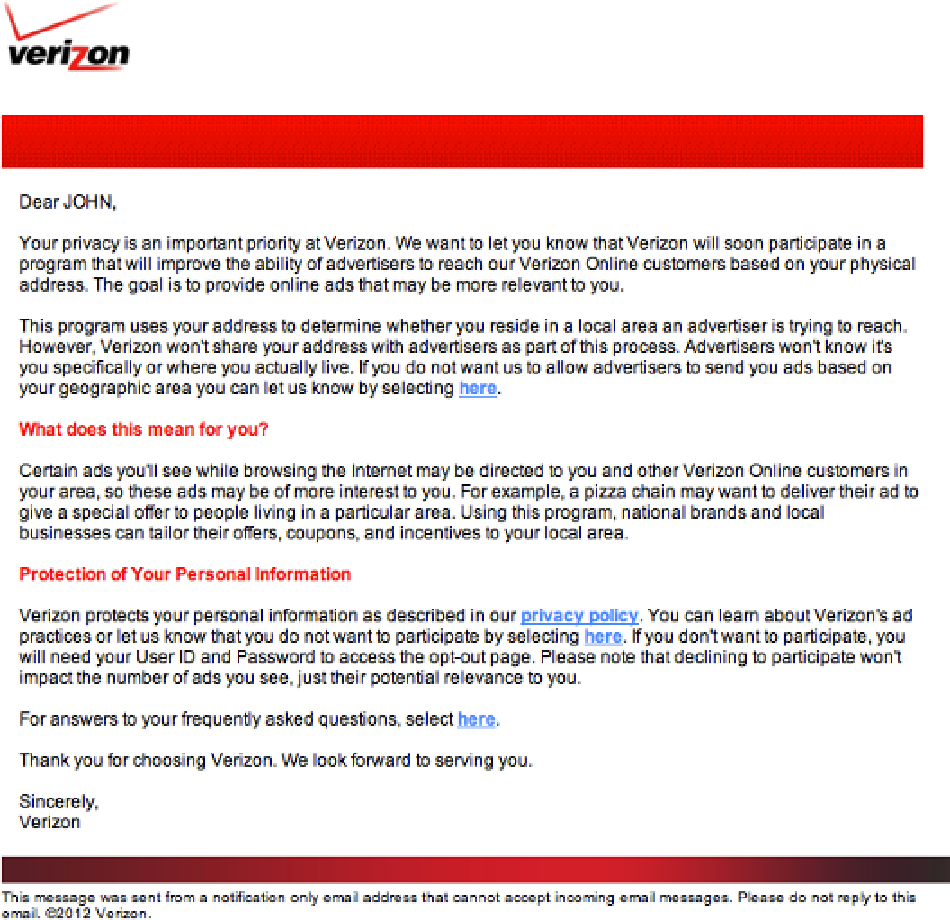HTML and CSS Reference
In-Depth Information
big cable companies top-dollar to view a bunch of content, most of it you'll never watch and you're being advertised
toward! I predict this will eventually shift in the years to come, especially as content gets pushed across all of the
different screens a user has.
For me and where I am located, I use Verizon for my cable and Internet services, and even though I'm a paying
customer, Verizon still requests my permission to sell targeted advertising to me. Refer to Figure
13-2
, which is an
e-mail from Verizon that I received shortly after signing up for the service.
Figure 13-2.
A Verizon e-mail asking for permission to serve targeted third-party ads
As you can see, this polite e-mail from the folks at Verizon stress that they're sharing my information to provide
relevant online ads, but if you recall from the beginning of the topic, Verizon is really selling that information to
advertisers for top-dollar in return for targeted advertising campaigns on their network. While I think this model needs
to change (especially because customers like myself pay an ungodly amount of money to cable companies), there is
room for both models in the market. Cable should sell premium and live content to users such as sporting events and the
Olympics, but there also should be free ad-supported models. Ultimately, users should be able to control their content
on demand while paying for what they actually consume. I predict the web having a huge impact on this change.

